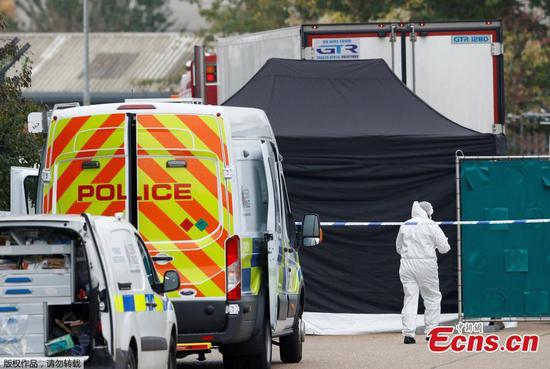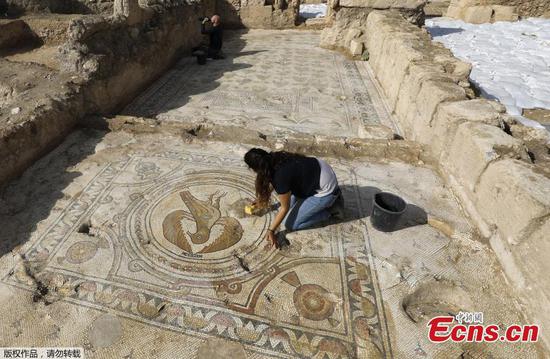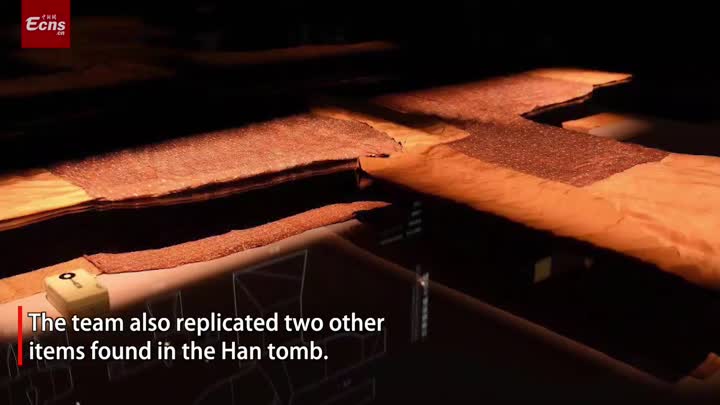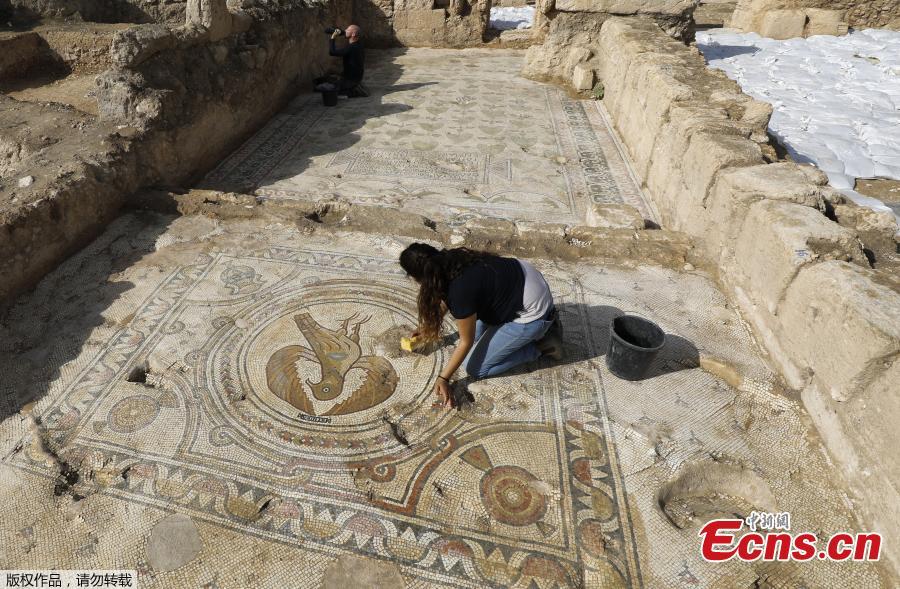
An Israel Antiquities Authority worker cleans a mosaic floor in the remains of a 1500-year-old church, which archeologists say was built in honour of a 'glorious martyr', whose identity is unknown, in Ramat Beit Shemesh, Israel October 23, 2019. (Photo/Agencies)
The building has been named the “Church of the Glorious Martyr,” after the figure to whom the church was devoted according to an inscription, and whose identity remains a mystery.

An Israel Antiquities Authority worker cleans a mosaic floor in the remains of a 1500-year-old church where archeologists said it was built, in honour of a 'glorious martyr' whose identity is unknown, in Ramat Beit Shemesh, Israel October 23, 2019. (Photo/Agencies)
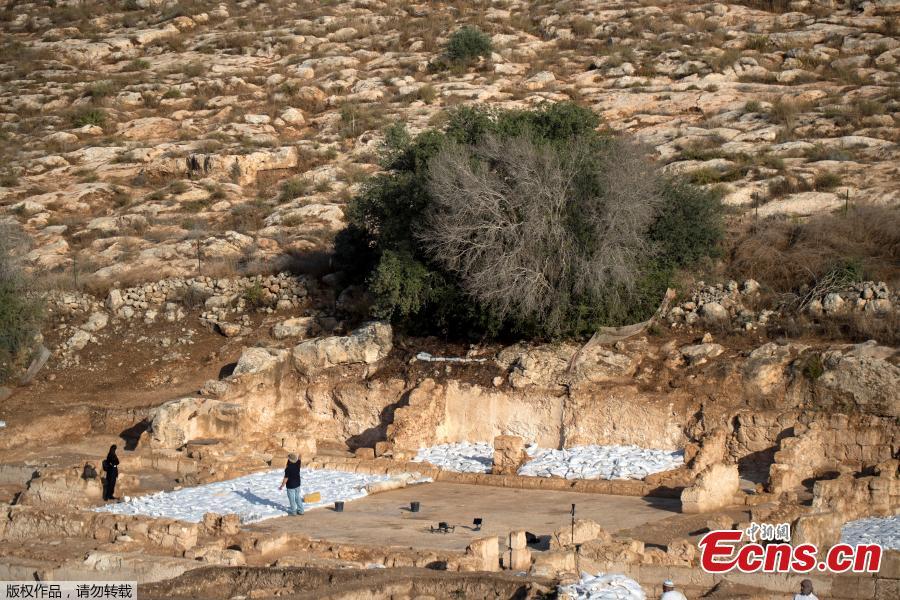
Benjamin Storchan, director of excavation on behalf of the Israel Antiquities Authority, stands at a site where remains of a 1500-year-old church were found, and which archeologists say was built in honour of a 'glorious martyr', whose identity is unknown, in Ramat Beit Shemesh, Israel October 23, 2019. (Photo/Agencies)
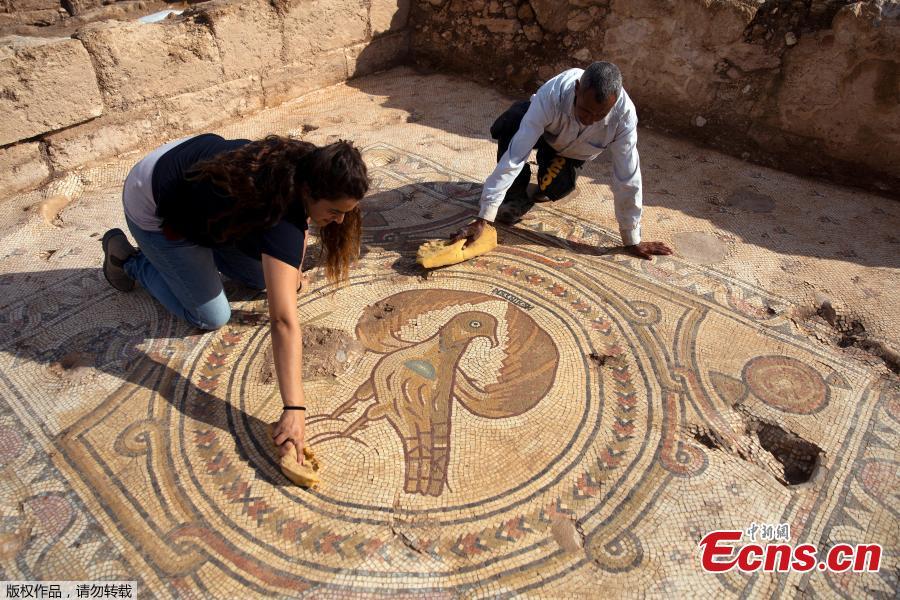
Two Israel Antiquities Authority workers clean a mosaic floor in the remains of a 1500-year-old church which archeologists say was built in honour of a 'glorious martyr', whose identity is unknown, in Ramat Beit Shemesh, Israel October 23, 2019. (Photo/Agencies)
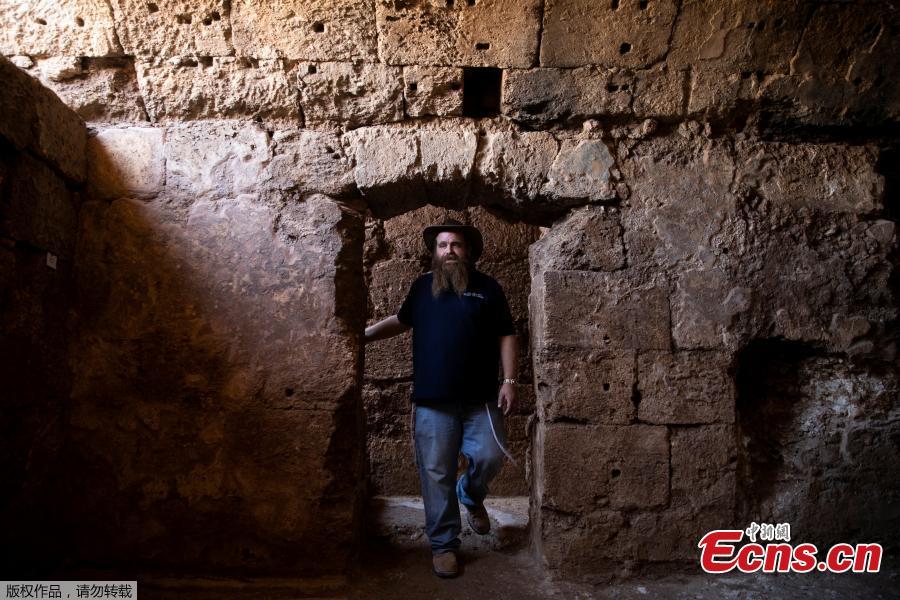
Benjamin Storchan, director of excavation on behalf of the Israel Antiquities Authority, walks inside a crypt where remains of a 1500-year-old church were found, and which archeologists say was built in honour of a 'glorious martyr', whose identity is unknown, in Ramat Beit Shemesh, Israel October 23, 2019. (Photo/Agencies)
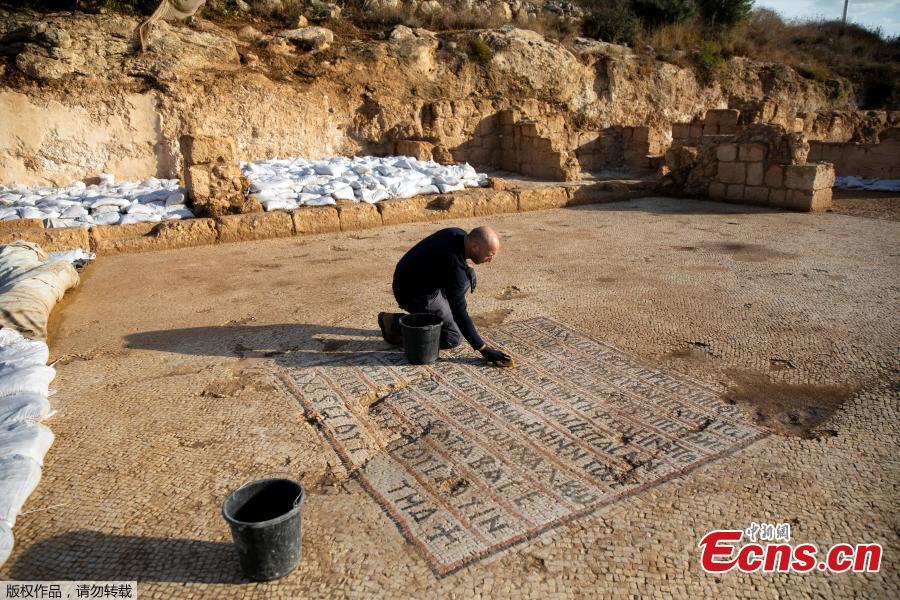
An Israel Antiquities Authority worker cleans a mosaic floor in the remains of a 1500-year-old church, which archeologists say was built in honour of a 'glorious martyr', whose identity is unknown, in Ramat Beit Shemesh, Israel October 23, 2019. (Photo/Agencies)













